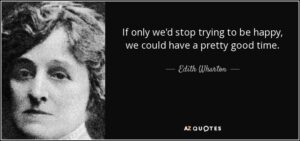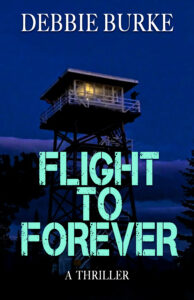
By Debbie Burke
Public Domain Day was January 1, 2020. Although today is February 22, a tad late, it’s still a newsworthy event for writers and readers because books like The Great Gatsby (F. Scott Fitzgerald), Mrs. Dalloway (Virginia Woolf), Manhattan Transfer (John DosPassos), In Our Time (Ernest Hemingway), and An American Tragedy (Theodore Dreiser), among many others, came into the public domain.
Same with films like Buster Keaton’s Go West and songs like “Yes, Sir, That’s My Baby.”
Here is the link to Duke University Law School’s announcement and listing of many other artistic works whose copyrights expired as of January 1: https://web.law.duke.edu/cspd/publicdomainday/2021/
One book in the bunch caught my attention: The Writing of Fiction by Edith Wharton, the first woman to win a Pulitzer Prize for her 1920 novel The Age of Innocence.
Has fiction writing changed much since 1925? Are 95-year-old insights from the first female Pulitzer winner relevant to writers in 2021?
The Writing of Fiction is short, fewer than 150 pages, originally published by Scribner in 1925. Much of the beginning section is literary criticism, comparing Proust, Austen, Dostoyevsky, Tolstoy, and other greats of the era, contrasting them with the new “stream-of-consciousness” trend that shook up readers at that time. I confess I skimmed those parts.
But elsewhere Wharton reveals her views on the art and craft of storytelling.
I found several passages I thought might provoke interesting discussion among TKZers.
Wharton calls the “modern” novel “that strange chameleon-creature which changes its shape and colour with every subject on which it rests.”
In the following paragraph, she describes what writers often call being in the zone:
“To the artist his world is as solidly real as the world of experience, or even more so, but in a way entirely different; it is a world to and from he passes without any sense of effort, but always with an uninterrupted awareness of the passing.”
Here at TKZ, we often work on point-of-view problems.
Wharton is critical of “the slovenly habit of some novelists of tumbling in and out their characters’ minds, and then suddenly drawing back to scrutinize them from the outside as the avowed Showman holding his puppets’ strings.”
About character development, she writes: “[they are] the creatures of [the author’s] imagination, more living to him than his own flesh-and-blood…”
Further, she studies the tightrope that writers must walk while creating characters. On one hand, she cautions against the “author [who] is slave to characters” while, on the other hand, who risks becoming a “puppeteer manipulating marionette strings…”
Conflict is another topic that she addresses:
“The conflict, the shock of forces, is latent in every attempt to detach a fragment of human experience and transpose it in terms of art, that is, of completion.”
This is what she has to say about an artist’s sensitivity:
“One good heart-break will furnish the poet with many songs, the novelist with a considerable number of novels. But they must have hearts that can break.”
On the focus of a story, she writes:
“…the only remedy is resolutely to abandon the larger for the smaller field, to narrow one’s vision to one’s pencil, and do the small thing closely and deeply rather than the big thing loosely and superficially.”
The topic of inspiration:
“Many people assume that the artist receives, at the onset of his career, the mysterious sealed orders known as ‘Inspiration,’ and has only to let that sovereign influence carry him where it will. Inspiration indeed comes at the outset to every creator but it comes most often as an infant, helpless, stumbling, inarticulate, to be taught and guided, and the beginner, during this time of training his gift, is as likely to misuse it as a young parent to make mistakes in teaching his first child.”
Writers often ponder if their concept, plot, or characters are original enough to capture readers’ tastes. Wharton’s answer:
“True originality consists not in a new manner but in a new vision. That new, that personal vision is attained only by looking long enough at the object represented to make it the writer’s own; and the mind which would bring this secret germ to fruition must be able to nourish it with an accumulated wealth of knowledge and experience.”
~~~
TKZers: Did any of Edith Wharton’s thoughts particularly strike you?
Are they out of date, no longer relevant?
Or does she express timeless truths about the art of writing fiction?
~~~
Debbie Burke is one of Montana’s Women of Mystery, along with Leslie Budewitz and Christine Carbo. Three crime novelists will reveal writing secrets and talk about their books during a Zoom appearance on Wednesday, February 24, at 3 p.m. mountain time. Email debbieburkewriter@gmail.com for the Zoom invitation.

